Matt Rees's Blog - Posts Tagged "9-11"
The Decade that Dare not Speak its Name
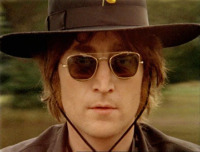 In the documentary “Imagine,” John Lennon comments that his song “Starting Over” was a message to fans his own age in which he aimed to ask them: “Hey, how’re you? Weren’t the Seventies a drag? Let’s hope the Eighties will be better.”
In the documentary “Imagine,” John Lennon comments that his song “Starting Over” was a message to fans his own age in which he aimed to ask them: “Hey, how’re you? Weren’t the Seventies a drag? Let’s hope the Eighties will be better.”If John had lived on through the Eighties to experience the decade just gone, I’m sure he’d have used a stronger word than “drag” to describe it, and it would’ve been an adjective that came easily to his lips. The noun, however, would’ve been harder to place in that sentence.
What to call the first decade of this century has been the subject of numerous articles, all of which seem to me to reflect a desire ultimately not to name the decade at all. To forget it. To put behind us its litany of disasters (Asian tsunami, Hurricane Katrina), terrorism (9/11, Madrid, London, Bombay, every third city block in Pakistan), war (Iraq, Afghanistan, the intifada) and assorted horrors (Depression, Darfur, Dick Cheney).
Op-eds opine about whether to call these 10 years the “Aughts” (an American-English misapplication of the word “nought”) or the “Naughties” or the “Zeroes” or the “Ohs.” But no one seems able to name the decade authoritatively.
That desire to forget suggests to me that the secrets of this last decade – the nastiness lurking beneath its ugly surface, the things we’d like to escape simply by refusing to name even the time in which they took place – will be perfect material for fictionalized history in years to come.
I’m thinking in particular of the kind of books James Ellroy has written about the Sixties and Seventies or David Peace about Britain in the Seventies. In “American Tabloid,” “The Cold Six Thousand” and “Blood’s a Rover,” Ellroy mined the suspicions we all had that Kennedy was really a poonhound murdered by the mob with the FBI’s connivance, that Martin Luther King went pretty much the same way, and that a group of drug-taking, pinko-fearing psychos were the engine of history, rather than people like John Lennon.
The first decade of this century seems to me prime Ellroy territory. Halliburton, Blackwater, rendition, the Patriot Act, the Department of Homeland Security all seem geared toward the secret, second history that makes Ellroy’s novels so fascinating. And the characters? Wouldn’t you like to know what really drove the recovering addict who stole the world, and what he heard from the tight lips of Uncle Dick?
In the case of Ellroy’s style, which involves using real public figures, writers have to wait for them to die, so that they can’t sue. That could hold things up. My money is on W living to be a hundred and being laid to rest in a casket made out of one of the last trees, while bloggers tweet their tributes directly into our “iFrontalcortexes.” (If I’ve violated an Apple trademark here, I apologize. Sorry, iApologize.)
So I’ve tried to get rolling on the job of fictionalizing this decade early – to show, through the prism of fiction, what really happened, and what the newspapers missed.
My series of Palestinian crime novels is intended to show the reality of life in the West Bank and Gaza during the intifada. To unveil the tribal conflicts and the battles over corrupt cash that truly dictated the course of the “uprising.” To contrast with coverage by news journalists who only got at the tip of the real meaning when they portrayed it as a struggle over a “peace process.”
I used real characters – their names changed either to protect them from attack, or to protect me and my sources from reprisals and law suits – to show the very things that journalists, who use “real” named figures in their work, failed to demonstrate.
Next month, the fourth book in the series will be out. THE FOURTH ASSASSIN takes my Palestinian sleuth Omar Yussef abroad for the first time — to New York. My aim is to examine the way the West looks at Muslims and how Muslims become marginalized or turn to extremism. To confront what we all know to be the most important issue of the decade that dare not speak its name.
You won’t find Dick Cheney in the book. But his fingerprints are all over it.
The Daily Beast and The New York Times
 My new Palestinian crime novel THE FOURTH ASSASSIN is one of five "This Week's Hot Reads" on The Daily Beast, which is also the hot read of the web these days. The Beast says of my book and its Brooklyn setting: "Rees paints a meticulous portrait of the post-9/11 community of Little Palestine and the tension of cultures trying to co-exist."
My new Palestinian crime novel THE FOURTH ASSASSIN is one of five "This Week's Hot Reads" on The Daily Beast, which is also the hot read of the web these days. The Beast says of my book and its Brooklyn setting: "Rees paints a meticulous portrait of the post-9/11 community of Little Palestine and the tension of cultures trying to co-exist."Meanwhile, The New York Times Book Review highlights the paperback release of my previous novel THE SAMARITAN'S SECRET in its Paperback Row column, calling the book "provocative and humane." Seems The Times'd rather print a nice photo of me than one of Jimmy Carter, too. Well, the old boy had his time in the sun.
Published on February 13, 2010 23:31
•
Tags:
9-11, bay-ridge, brooklyn, crime-fiction, jimmy-carter, little-palestine, matt-beynon-rees, new-york, new-york-times-book-review, paperback-row, the-daily-beast, the-fourth-assassin, the-samaritan-s-secret
Inventing the Palestinian detective
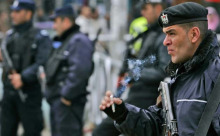 The dead man's mother raged and wept as she told me how she’d discovered her son’s body, in the cabbage patch outside her home. She’d gone down on her knees, she said, touched his blood and wiped her fingers on her face, calling out that God is most great.
The dead man's mother raged and wept as she told me how she’d discovered her son’s body, in the cabbage patch outside her home. She’d gone down on her knees, she said, touched his blood and wiped her fingers on her face, calling out that God is most great.As the winter wind came cold off the Judean Desert, I watched her tears and thought: “I have to write a novel about this.”
Forgive me if that sounds callous, but I’m a writer. Or, I should say, that’s the moment when I became a writer.
I was Time Magazine’s Jerusalem bureau chief, covering the violence of the Palestinian intifada, when I went to that bereaved mother in her village on the edge of Bethlehem in 2002. I had always written fiction, but only published a few short stories. In the midst of the despair that engulfed Israelis and Palestinians, I found the very thing that could make me happy – the material for my series of Palestinian crime novels.
The killing of that woman’s son as he crept home in the dark was the basis for the opening death in my first novel “The Collaborator of Bethlehem.” The book won a Crime Writers Association Dagger. Since then I’ve published two more crime novels set in the Palestinian towns.
They’re a response to the emotional questions that, as a journalist, I was never able to answer. Strangely, fiction proves to be a better way to understand extreme events than journalism.
Since the first time I set foot in the West Bank in 1996, I had grown disillusioned with the ability of journalism to convey the depth of what I learned about the Palestinians. Back then, I visited the family of a Nablus man tortured to death in one of Yasser Arafat’s jails. The news article I wrote was a good one, uncovering the internal Palestinian violence so often overshadowed by the more spectacular conflict with Israel. But my impressions were much deeper.
I was struck by the candor and dignity with which the dead youth’s family spoke to me; the sheer alien nature of the place thrilled me. At the entrance to the family’s house in the casbah, an old oil drum held black flags and palm fronds, symbols of Islamic mourning. Men sat around smoking under a dark awning. I felt a powerful sense of adventure, as though I had uncovered an unknown culture.
The lawlessness of Palestinian life also gave me great characters for my fictionalized good guys. But also the villains. Unfortunately there are many Palestinians who have strong motivations to kill each other. I’ve spent a lot of time over the years with some of these men, trying to learn why they take the path of violence—time that has led to a deeper characterization of the villains in my books.
With my new novel, “The Fourth Assassin,” I brought my sleuth Omar Yussef to New York because I wanted him to confront the most important issue of the last decade – an issue which is crystallized in its most horrifically concrete form in the city of 9/11.
It’s a natural progression for a series that began in the cabbage patch near Bethlehem. When I stood there, it was seven months after the attacks on New York and Washington. The questions posed to anyone thinking about the Middle East had just become so much more complex. Too complex and emotional for journalism to encompass them and, all these years later, for politicians, too.
Whether it’s a single sniper’s bullet cutting through the chest of a man outside his mother’s house or a jetliner bursting through a 110-story building, my novels are aimed at the most explosive points in our recent history. That’s why I simply had to write them.
(I posted this on a joint International Crime Authors blog I write with three other writers. Check it out.)
Published on February 24, 2010 22:49
•
Tags:
9-11, assassination, bethlehem, blog, brooklyn, crime-fiction, journalism, judean-desert, middle-east, new-york, omar-yussef, sniper, the-collaborator-of-bethlehem, the-fourth-assassin, time-magazine, united-nations, washington, west-bank, yasser-arafat
An Islamic Romeo and Juliet
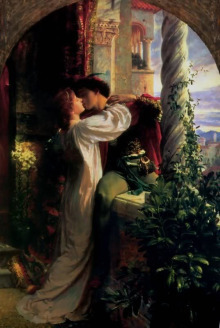 Since 9/11, journalists and writers have tried to make sense of the extremists committed to the destruction of the West and, often, that of their own societies in the Middle East. Mostly this has meant “going inside” the world of those extremists, giving us the inner life of suicide bombers or of the “American Taliban.”
Since 9/11, journalists and writers have tried to make sense of the extremists committed to the destruction of the West and, often, that of their own societies in the Middle East. Mostly this has meant “going inside” the world of those extremists, giving us the inner life of suicide bombers or of the “American Taliban.”It’s a worthy premise, because it’s aimed at comprehending people who are frequently written off as bestial, bloodthirsty psychopaths, as though they’d been born that way. As a journalist with 14 years experience in the Middle East, I’ve written such stories often enough. But in my new novel I decided to highlight the desperate world of Arabs who struggle against the extremism that drags them toward their inevitable, tragic end. This is the most profound way of humanizing Arabs, because it shows them clinging to the very things that make them just like us, rather than succumbing to the ugliness of a politics that sets them against us.
That’s why I see my new crime novel, “The Fourth Assassin,” as an Islamic “Romeo and Juliet” set in the context of a political assassination plot in New York. I want to put a human face on Arabs, who’re so often seen as stereotypical terrorists. But I want to focus less on the pain and confusion that leads to hatred, and instead to reveal the love that can provide hope for Arab people in the face of so much destruction and division. To illustrate, for Western readers, what they’re up against, too.
“The Fourth Assassin” begins with Omar Yussef, the hero of my previous three Palestinian crime novels, arriving in New York for a UN conference. He uncovers an assassination conspiracy involving some of his former pupils from back home in Bethlehem. It unfolds in the neighborhood of Brooklyn called Bay Ridge. With its growing Palestinian community, Bay Ridge is in fact becoming known as “v”.
As he delves into the background of the plot, Omar looks for political explanations. That’s what journalists and writers typically do when they examine the Middle East. But gradually Omar sees that there’s a love story behind what’s happening. A love story between a young Sunni Muslim who has been sucked into the assassination plot and a Lebanese Shia girl who wants to enjoy the freedoms of American life.
The book’s a crime novel, so I’m not giving anything away when I say that Omar sees these lovers as tragic, somehow doomed by the politics around them. But he acknowledges – as the lovers do – that their human connection is so important that it’s worth any sacrifice. Just as Romeo does when he rails against the family politics that would deny him his Juliet and designate such divisions as fated. “Then I defy you, stars,” he calls out.
With Romeo and Juliet, the doom that surrounds them isn’t the point of the play. It’s their hope and defiance that draws them to us. If Shakespeare had written a three-hour examination of the political conflict between the Montagues and the Capulets, I don’t expect we’d pay it much attention these days. Neither would we be interested in the play had it focused on Tybalt, Juliet’s hot-headed, murderous cousin, or Mercutio, the pal of Romeo who shouts “a plague on both your houses” as he dies. Yet that’s exactly what journalists and writers give us in their attempts to “explain” the Arab world.
Love is what helps us to understand those who seem otherwise to be set against us. That’s what Omar Yussef learns in “The Fourth Assassin.” I hope the novel will help my readers see that love is as much a part of life for Arabs as the violence that dominates their portrayal in the news pages.
Published on April 02, 2010 02:05
•
Tags:
9-11, american-taliban, arabs, bay-ridge, bethlehem, brooklyn, crime-fiction, islam, lebanon, middle-east, montagues-and-capulet, new-york, omar-yussef, palestine, palestinians, romeo-and-juliet, shakespeare, taliban, the-fourth-assassin
How to keep up on the Middle East
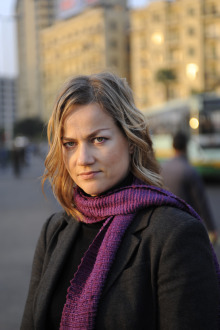 JERUSALEM — Time was anyone with an interest in the Middle East could be guaranteed a couple of books a year would be brought out by U.S. journalists based in the region. Now many of those correspondents are history, with news bureaus closing and those that remain cutting back. The new books written by Americans tend to be by think-tank types or others whose agenda is hard to figure out.
JERUSALEM — Time was anyone with an interest in the Middle East could be guaranteed a couple of books a year would be brought out by U.S. journalists based in the region. Now many of those correspondents are history, with news bureaus closing and those that remain cutting back. The new books written by Americans tend to be by think-tank types or others whose agenda is hard to figure out.But you know that already. It’s one reason you’re reading GlobalPost, which was founded partially to replace the disappearing corps of U.S. foreign correspondents. [That's where I first posted this.]
So GlobalPost has solved your journalism problem. But, still, what’re you going to do about the books? With a book written by a foreign correspondent you couldn’t always be sure of a good read —I’ve ploughed through some stinky “notebook dumps” in my time by reporters who padded pages with meaningless tales of their Palestinian and Israeli “friends” — but you at least knew that it was by a responsible journalist answerable to editors and readers even for his extracurricular writings. Not so with think-tank academics whose financing and agenda can make for deeply skewed accounts.
The answer: Europeans. A new book demonstrates what I’m talking about.
“Hold onto Your Veil, Fatima!” is an expose of contemporary Egypt that’s at once harrowing and humorous by Sanna Negus, a reporter for Finland’s YLE Radio and TV.
Negus came to the Middle East in the mid-1990s for graduate studies in Cairo, largely because she wanted to learn an unusual language and figured Arabic fit the bill. (It’s not as unusual as Finnish, but then she already had that covered.) She returned to Cairo, working for the English-language Cairo Times and staying for a decade as YLE’s correspondent. She’s been based in Jerusalem the last two years. (Lawrence Wright, who won a Pulitzer for “The Looming Tower: al-Qaeda and the Road to 9/11,” writes in the book’s foreword that Negus is “one of the most informed and well-connected reporters in the region.”)
Read the rest of this post on my blog The Man of Twists and Turns.
Published on June 20, 2010 03:16
•
Tags:
9-11, american-colony, cairo, cairo-times, crime-fiction, egypt, female-circumcision, finland, genital-mutilation, global-post, hold-onto-your-veil-fatima, israe, jerusalem, journalism, lawrence-wright, middle-east, middle-east-books, pulitzer-prize, sanna-negus, the-looming-tower, time-magazine, women
The Reverse Orientalist: Kamal Abdel-Malek’s Writing Life Interview
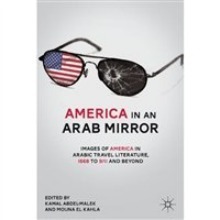 When Kamal Abdel-Malek was a young student, he chose to study outside the Arab world, eventually becoming a professor at Brown and Princeton Universities in the US. It was the first step in the physical and intellectual journeys of this intriguing Egyptian writer. Born in Alexandria and now a teacher of Arabic literature at the American University in Dubai, Abdel-Malek’s latest publication (available in English) is perhaps his most important, because it answers many of the questions Westerners asked themselves about the Arab world since the 9/11 attacks almost a decade ago. Abdel-Malek’s technique is an unusual and compelling one, because instead of seeking to explain how Arabs are, in America in an Arab Mirror: Images of America in Arabic Travel Literature, 1668 to 9/11 and Beyond he shows how we look to them. It’s a reversal of what the Palestinian intellectual Edward Said noted in Westerners writing about the Middle East: When you read the perceptions of Arab writers about Western society, it shows as much about the Arab writer as it does about the country he’s observing. Kamal took time to explain more about this vitally important book and to talk about his life as a writer. Demonstrating his originality as a thinker, he’s also the first writer I’ve interviewed on this blog to give due credit to Dan Brown.
When Kamal Abdel-Malek was a young student, he chose to study outside the Arab world, eventually becoming a professor at Brown and Princeton Universities in the US. It was the first step in the physical and intellectual journeys of this intriguing Egyptian writer. Born in Alexandria and now a teacher of Arabic literature at the American University in Dubai, Abdel-Malek’s latest publication (available in English) is perhaps his most important, because it answers many of the questions Westerners asked themselves about the Arab world since the 9/11 attacks almost a decade ago. Abdel-Malek’s technique is an unusual and compelling one, because instead of seeking to explain how Arabs are, in America in an Arab Mirror: Images of America in Arabic Travel Literature, 1668 to 9/11 and Beyond he shows how we look to them. It’s a reversal of what the Palestinian intellectual Edward Said noted in Westerners writing about the Middle East: When you read the perceptions of Arab writers about Western society, it shows as much about the Arab writer as it does about the country he’s observing. Kamal took time to explain more about this vitally important book and to talk about his life as a writer. Demonstrating his originality as a thinker, he’s also the first writer I’ve interviewed on this blog to give due credit to Dan Brown.How long did it take you to get your latest book published?
Two years. America in an Arab Mirror was published in April by Palgrave Macmillan in New York.
Would you recommend any books on writing?
Yes, books like these are helpful: On Writing by Stephen King, Break into Fiction, First Draft by Buckham and Love, and of course the classic, The Elements of Style by Strunk and White.
What’s a typical writing day?
I teach during the day so the only time available is either early in the morning or late in the evening. The best time is in the morning, especially when I wake up after a good night sleep.
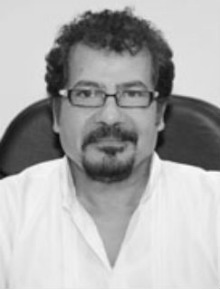
Plug your book. How would you describe what it’s about? And of course why’s it so great?
America in an Arab Mirror: Images of America in Arabic Travel Literature, 1668 to 9/11 and Beyond deals with Arab-American relations, cross-cultural communication, and cultural understanding in general. The New York Times published a good review of it on April 21, 2011. My interest in Arab-American encounters in history, literature, and the arts started over a decade ago. The accounts of Arab travelers to America have always fascinated me. I widely researched the topic and had opportunities to read papers on it at Princeton and Dartmouth where I greatly benefited from the comments and the questions posed by colleagues in the field of Arabic and Middle Eastern studies. A question that was raised by a Princeton Arabist after one of my talks on the topic was whether Arab writings on America could be regarded as a case of Occidentalism, a counter-Orientalism of sorts. In some ways this book is a reversal of what Edward Said described as the West’s Orientalist view of the East. One could say that its stories are an Arab way of saying, “We, too, can subjugate you, Westerners, to our tourist, voyeuristic gaze.”
What’s your favorite sentence in all literature, and why?
If the question is about “favorite lines” instead of “favorite sentence” then I would mention, without hesitation, the evocative lines uttered by Macbeth upon receiving the news of his wife’s death.
Life's but a walking shadow, a poor player,
That struts and frets his hour upon the stage,
And then is heard no more. It is a tale
Told by an idiot, full of sound and fury,
Signifying nothing.
Macbeth Act 5, scene 5
What’s the best descriptive image in all literature?
But let there be spaces in your togetherness and let the winds of the heavens dance between you. Love one another but make not a bond of love: let it rather be a moving sea between the shores of your souls. -- Khalil Gibran
The teacher who is indeed wise does not bid you to enter the house of his wisdom but rather leads you to the threshold of your mind. -- Khalil Gibran
Who’s the greatest stylist currently writing?
In Arabic I must mention Yusuf Idris, the greatest short story writer and playwright. In Arabic he employs the different register of modern Arabic and the very evocative expressions of the everyday spoken Egyptian colloquial. In my opinion he, not Naguib Mahfouz, should have received the Nobel Prize for Literature. Outside the Arab world one can mention Gabriel García Márquez.
Read the rest of this post on my blog The Man of Twists and Turns.
Published on May 08, 2011 06:38
•
Tags:
9-11, america-in-an-arab-mirror, arab-world, arab-writers, egypt, egyptian-writer, interviews, kamal-abdel-malek, middle-east, writers, writing-life



